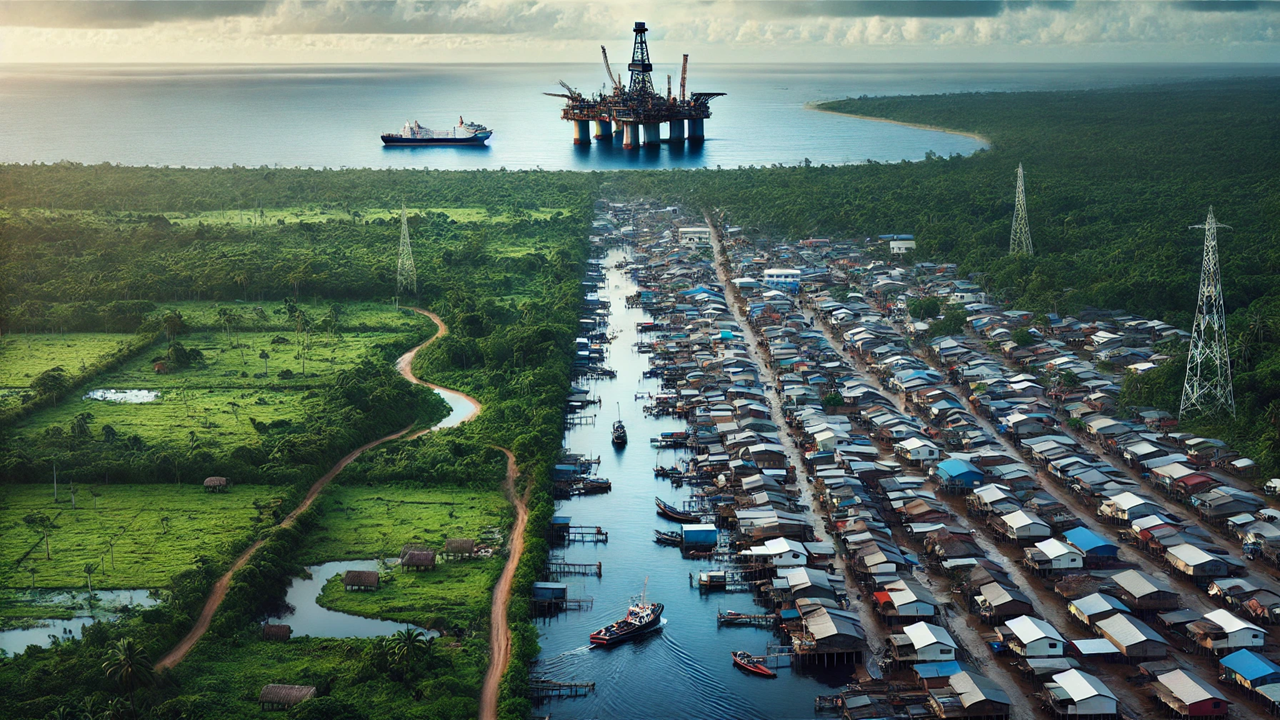Suriname at a Crossroads: Navigating Poverty, Inequality, and the Promise of Oil Wealth
Suriname, emerging from a crippling economic crisis, is at a pivotal moment as it anticipates significant oil revenues. However, challenges persist in poverty and inequality, with human capital deficiencies and labor market disparities holding back growth. The government must prioritize education, social assistance, and fiscal stability to ensure that the potential oil boom benefits all citizens. This article explores insights from the Suriname Poverty and Equity Assessment.

Suriname, a small Caribbean nation, finds itself at a turning point. After years of sluggish growth, compounded by the COVID-19 pandemic and a global commodity slump, the country’s economy contracted severely in 2020. However, recent economic reforms have brought signs of recovery, and the much-anticipated offshore oil revenues offer new hope for prosperity. Yet, the road ahead is uncertain, and without targeted reforms, the benefits of this potential oil boom may not reach all citizens.
According to the Suriname Poverty and Equity Assessment, published by the World Bank in July 2024, Suriname's socioeconomic landscape is marred by high poverty rates, deep-rooted inequalities, and significant human capital deficiencies. While the oil sector offers a path to recovery, the report urges the government to address critical challenges such as education, social assistance, and labor market disparities to ensure that economic growth is inclusive.
From Crisis to Recovery: Economic Stability or Fragile Hope?
Suriname's economy suffered a major setback in 2020, with a sharp 17.5% decline in GDP per capita. The collapse was primarily driven by a drop in global commodity prices and poor economic management. The COVID-19 pandemic only worsened the situation, pushing many Surinamese into poverty. By 2022, the poverty rate stood at 17.5%, with about 1.1% of the population living in extreme poverty. Despite these alarming figures, the nation has begun to show signs of recovery, largely due to stringent economic reforms.
However, this fragile recovery faces new challenges, with much hope pinned on anticipated oil revenues. If managed well, the oil boom could provide the fiscal space needed for long-term poverty reduction. Yet, Suriname’s over-reliance on natural resources, coupled with the risk of Dutch disease—where other sectors of the economy suffer due to a sudden influx of wealth—poses risks. The oil and gas sector is capital-intensive, meaning job creation may be limited, and without skilled workers, much of the benefit may bypass local populations.
Poverty, Inequality, and the Education Gap
While economic recovery is underway, poverty and inequality remain deeply entrenched in Suriname. Ethnic and geographic disparities continue to divide the country, with poverty rates significantly higher in the rural interior. More than one in four Surinamese living in these regions falls below the World Bank’s upper-middle-income poverty line of US$6.85 per day. Indigenous and Maroon communities are particularly vulnerable.
A key driver of this inequality is a severe deficiency in human capital, particularly in education. The report reveals that Suriname's education system is underperforming, with lower secondary school completion rates comparable to much poorer nations such as Mozambique and Senegal. Despite education spending being on par with other countries in the region, the outcomes are dismal, especially among boys. Women, on the other hand, outperform men in education, yet face considerable barriers in the workforce. High rates of early marriage and adolescent fertility significantly hinder women's ability to transition from school to employment, exacerbating labor market inequalities.
Suriname’s education system needs urgent reform. Improving school completion rates, particularly for marginalized communities, is critical to breaking the cycle of intergenerational poverty. The report also calls for better vocational training programs to equip the workforce with the skills needed to capitalize on future economic opportunities, particularly in the oil sector.
Strengthening Social Assistance for a Resilient Future
In addition to education, the report highlights the need for stronger social assistance programs. While Suriname has several key programs, including the General Old Age Pension and a Child Allowance, these efforts fall short in covering the full spectrum of poverty. About 55% of poor households benefit from some form of assistance, but a significant portion remains excluded. Social protection for historically marginalized groups, such as the Maroons and Indigenous populations, is particularly lacking.
The World Bank’s assessment stresses that Suriname’s social safety nets must be expanded and reformed to better target the most vulnerable. This is especially important as economic shocks, such as fluctuations in oil prices, can quickly reverse gains in poverty reduction. The introduction of a more robust social registry and the modernization of payment systems could enhance the efficiency and reach of these programs.
Can Suriname’s Oil Boom Bring Inclusive Growth?
While the potential for an oil boom offers a lifeline for Suriname, the report urges caution. The influx of oil revenues could provide the government with much-needed fiscal space, but without a focus on equitable growth, the benefits could remain concentrated among the wealthy. The report suggests that investments in education, social assistance, and targeted economic policies are essential to ensure that the oil windfall translates into lasting poverty reduction.
Suriname stands at a crossroads. The promise of oil wealth is tantalizing, but the path to inclusive, sustainable development will require more than natural resources. It demands a commitment to addressing the systemic issues of poverty and inequality that have long held the country back. Only through sound fiscal management and investment in human capital can Suriname hope to turn this moment of opportunity into a lasting era of prosperity for all.
- FIRST PUBLISHED IN:
- Devdiscourse
ALSO READ
Empowering Institutions: Devendra Fadnavis on Education Autonomy and India's AI Future
Navigating Education: PM Modi's River Dialogue
Innovation's Holy Grail: Uniting Science and Education for Social Change
Punjab's Mega Parent-Teacher Gathering Sparks Educational Revolution
Transforming Medical Education: India's Healthcare Evolution










